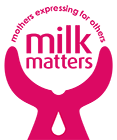Planning for your baby’s birth
Before making choices related to your baby’s birth, do the necessary research and choose your healthcare practitioners and where you will give birth with care.

Childbirth Education Classes
Enrolling for childbirth education classes (antenatal classes) with an experienced, well qualified childbirth educator can help to provide you with important information about what to expect and what options you have before, during and after the birth.
Evaluate the information you are given to see if it is research based information and is up to date, or if it is a personal opinion, is outdated or not in fact true.
Choosing Your Health Professional and Birth Place
Even if you hardly ever visit a doctor, it is likely that you will be doing so more often once you start a family.
Some expectant parents choose the hospital before their obstetrician if the hospital offers the kind of birth and breastfeeding experience that they are looking for. Sometimes an obstetrician may be prepared to accommodate your request to deliver at a specific hospital.
You are not obliged to accept the services of the paediatrician that your obstetrician refers you to. You are entitled to choose your own paediatrician.
Healthcare practitioners to consider:
- obstetrician
- child birth educator
- midwife
- doula (see below)
- general practitioner
- paediatrician
In addition, many people choose to consult a:
- homeopath
- osteopath
- chiropractor
- acupuncturist
- reflexologist
- body stress release practitioner
- and other healthcare providers
It is essential that you choose the hospital where you give birth with care.
- Is it an accredited ‘Mother and Baby Friendly Hospital’?
- Is breastfeeding supported and up to date information offered?
- Is rooming in encouraged?
- Are doulas available / allowed?
- Are private midwives available/ allowed?
- Is donor breastmilk regularly used for premature babies if required?
Doula: ‘Doula’ is a Greek word referring to a woman that supports another woman or couples in labour. A doula is a childbirth companion who provides support during the pregnancy and remains with the mother throughout the labour and birth. A doula offers support and gives information to the mother and acts as a link with the medical personnel where necessary. A doula does not replace a midwife, but works alongside a midwife and doctor.
Prof. Justice Hoffmeyer said “If a doula was a drug, it would be illegal not to give it to woman in labour”
DID YOU KNOW
Middle-ear infections less common in breastfed babies...Pain Relief During Labour
Empower yourself to make an informed decision about what pain relief you will use during your labour, if you need any.
Even if you are planning natural childbirth without pain relief, informing yourself about pain relief options is important – giving birth is unpredictable and it is good to be in a position to make an informed choice in any given situation.
Research and consider:
- What pain relief options are available to you?
- What are the effects and side-effects on you?
- What are the effects and side-effects on the baby?
- How long do the effects last?
- How might it affect breastfeeding?
- Is it available where I intend giving birth?
- Do I need to make a booking or prior arrangements to make use of this?
Also investigate:
- What positions for labour optimise efficiency and lessen the likelihood of needing pain relief and interventions?
- What support relief (e.g. mid-wife assisted birth, doula, etc) is available to lessen the likelihood of needing pain relief and interventions.
Speak to other people and investigate who practices in your area if you are considering alternative pain relief options such as acupuncture, etc. Pay them a visit so that you can decide what you are comfortable with.
I firmly believe that the practice of Milk Banking is still in its infancy, globally and especially in South Africa. I expect it will steadily increase in profile and will progressively gain support until it overshadows blood transfusion both in the public and medical eye.
As a working mom who must travel for work, I was thrilled to discover Milk Matters on my recent trip to Cape Town. I spent a week there and Milk Matters made the whole experience of donating milk so easy.
I was so pleased that I could donate my milk to babies who could really use it instead of having to throw it away. I would encourage more travelling mamas to do the same.


